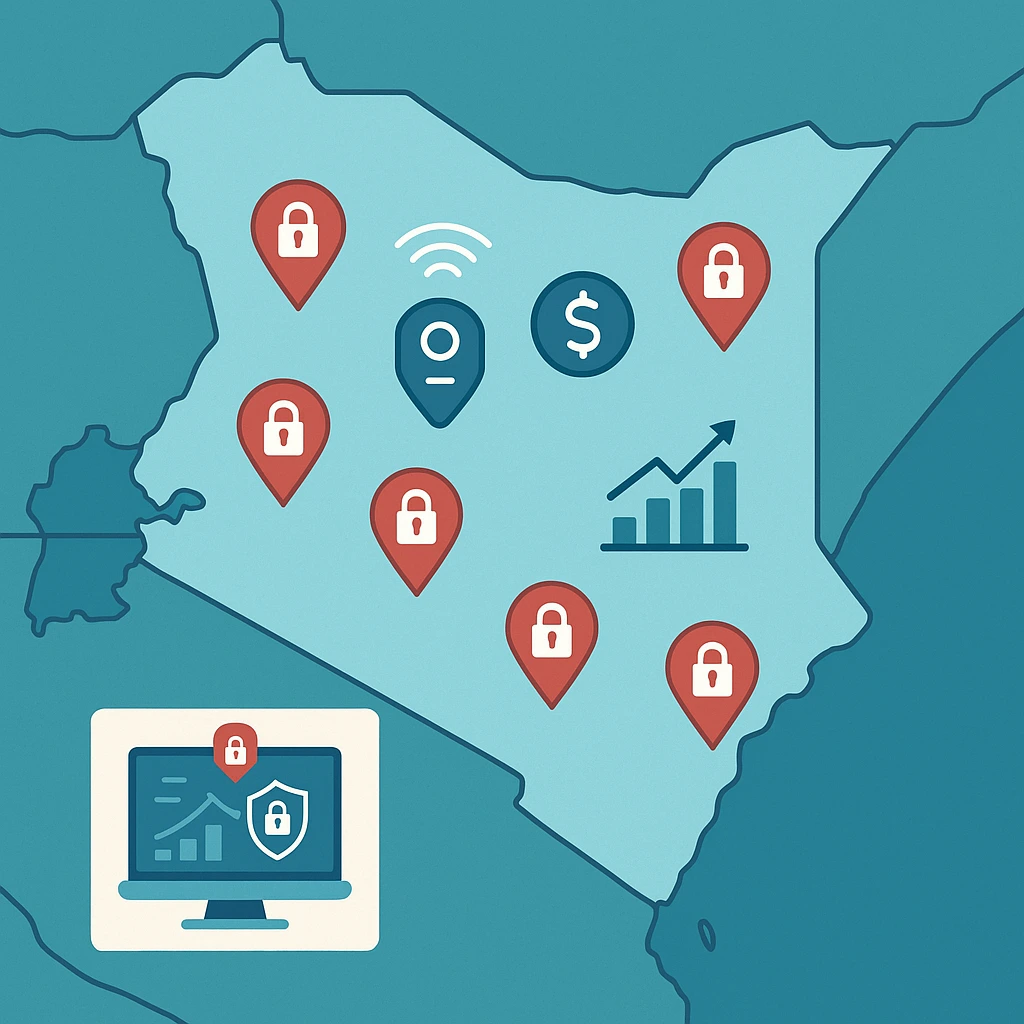Kenya’s Data Protection Act: What It Really Means for Your SME’s Cybersecurity Strategy
By Kevin Munene Mwenda | Published on:

I. Introduction: Navigating Data Privacy in Kenya
Kenya's digital transformation means businesses, especially Small and Medium-sized Enterprises (SMEs), are handling more personal data than ever. To protect this information, Kenya enacted the Data Protection Act, 2019 (DPA), which aligns with international standards like the EU's GDPR. The Office of the Data Protection Commissioner (ODPC) enforces this Act, with penalties for non-compliance reaching up to KES 5 million or 1% of annual turnover.
But beyond avoiding penalties, DPA compliance builds customer trust, enhances your reputation, lowers cybersecurity risks, and prepares your business for international opportunities. The Act emerged partly in response to legal rulings like the Huduma Namba case, emphasizing the need for stronger data safeguards. Coupled with directives like the Insurance Regulatory Authority's (IRA) 24-hour breach reporting rule, this reflects Kenya's increasing focus on data security. With cyberattacks on Kenyan SMEs up 82% in 2022, investing in data protection is no longer optional.
II. Decoding Kenya's Data Protection Act for SMEs
The DPA outlines several core principles for how personal data must be handled:
| Principle | What It Means | What SMEs Should Do |
|---|---|---|
| Lawfulness & Transparency | Data collection must be legal and clearly communicated. | Create clear privacy policies and get informed consent. |
| Purpose Limitation | Data should only be used for the reasons it was collected. | Define data use clearly and avoid secondary use without permission. |
| Data Minimization | Only collect data that is strictly necessary. | Avoid over-collection and regularly audit what you collect. |
| Accuracy | Keep data up-to-date and correct errors promptly. | Allow customers to update info and verify data regularly. |
| Storage Limitation | Don’t keep personal data longer than needed. | Set retention policies and delete data securely when no longer needed. |
| Integrity & Confidentiality | Protect data from unauthorized access or loss. | Use encryption, access controls, and secure storage systems. |
| Accountability | Be able to demonstrate compliance with these rules. | Maintain records, create policies, and assign responsibilities. |
Key requirements for SMEs:
- Register with the ODPC if your business processes data (unless exempt).
- Clarify roles as a Data Controller, Processor, or both.
- Respect data subject rights: allow people to access, correct, or delete their data.
- Report breaches to the ODPC within 72 hours; inform affected individuals unless the data was encrypted.
III. Data Protection in Practice: Strategic Moves for SMEs
A. Collect Less, Protect More
Map out the data you collect. Ask: Do we need all this? Set retention schedules and delete what’s no longer necessary.
B. Store Securely
- Encrypt data (in storage and in transit)
- Use access controls (only essential staff)
- Enforce MFA and strong passwords
- Backup data regularly and delete it securely
- Protect hardware physically
C. Build Privacy from Day One
Apply “Privacy by Design.” Think about privacy before launching new tools or systems. Run Data Protection Impact Assessments (DPIAs) for high-risk activities, set systems to minimize data use by default, and train your team.
IV. IRA Cybersecurity Directive: What It Means Beyond Insurance
The IRA now requires insurers to report major breaches within 24 hours. These include service disruptions, data theft, or financial losses. Boards are accountable, and regular policy reviews are expected. While this targets insurers, it signals a broader trend: data protection is becoming a leadership issue in all sectors.
With 855 million cyber threats detected in Kenya in a year, cybersecurity must be part of your business strategy, not just IT.
V. DPA + IRA: Stronger Together
- Fast breach reporting (72 hours under DPA, 24 hours under IRA)
- Proactive security and board-level responsibility
- Privacy by Design and data minimization
By complying with one, you're better prepared for the other. A secure data storage strategy helps you avoid breach notifications. An incident response plan satisfies both DPA and IRA. Minimizing data collection reduces breach impact.
VI. Cybersecurity on a Budget: What SMEs Can Do Now
Challenges SMEs Face:
- 58% spend under $5,000 annually on cybersecurity
- 72% lack dedicated IT staff
- 78% of phishing attempts succeed against untrained staff
- 62% of ransomware-hit SMEs pay the ransom
What You Can Do:
- Risk Assessments: Map your data flow and pinpoint risks.
- Incident Response: Create a step-by-step plan for breaches.
- Staff Training: Run basic cyber hygiene workshops.
- Use Affordable Tools: Free antivirus, firewalls, password managers like KeePass, MFA tools like Duo, and basic email protection.
- Engage Regulators: Register with the ODPC and other relevant regulators.
Quick SME Data Protection Checklist (Kenya)
- ☑ Register with ODPC
- ☑ Train your staff
- ☑ Set a data retention schedule
- ☑ Use MFA and regular data backups
- ☑ Prepare an incident response plan
VII. TL;DR: 5 Things Every SME Should Do Today
- Register with the ODPC if applicable, and stay updated with legal changes.
- Minimize Data Collection: Only collect what's necessary and delete what you no longer need.
- Secure Data: Use encryption, access controls, and backups.
- Train Your Staff: Educate your team on phishing, strong passwords, and safe browsing.
- Have a Plan: Prepare for data breaches with a clear incident response process.
VIII. Conclusion: Compliance is a Smart Strategy
Cybersecurity and data protection are no longer optional or "nice to have." They are essential for trust, growth, and staying on the right side of the law. By taking action today, you prepare your business for a secure, competitive, and sustainable future in Kenya's digital economy.
